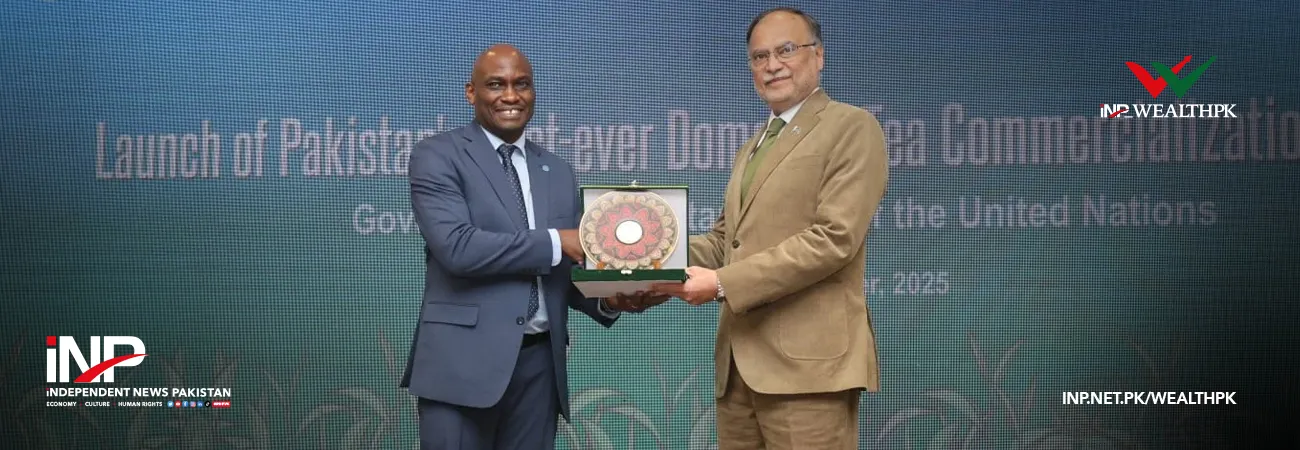INP-WealthPk
Aitizaz Hassan
Digital banking can gradually minimise economic dependency factor in developing countries like Pakistan, particularly in the rural areas where formal banking facilities are not available. Small businesses have historically faced challenges in accessing bank financing. The main barriers include high cost, physical distance, and lack of proper documentation. According to Habibur Rehman, Chief Executive Officer (CEO) of Sarmaya Microfinance, information technology and telecom markets across the country, along with a competitive environment in the digital lending sector, can help millions achieve financial independence in the country.
Habibur Rehman said one of the biggest challenges to digital financing is the widespread operation of non-registered and unlawful platforms that exploit their customers. “As the outreach of digital lending platforms grows, new loan options are available to citizens in remote areas, and it is also helping in digitisation of the economy,” said Habibur Rehman. He said that the mobile banking is also helping to provide personal loans.
He said access to finance is among basic human needs in the modern era, and getting loans in an emergency situation is difficult in rural areas as people do not have banking products like credit cards and ATMs are also not available. Habibur Rehman said people in such areas are forced either to borrow money from friends and relatives or from money-lenders. He said the growing digitisation can fill this gap with the help of an expansive network of money transfer platforms like Easypaisa and JazzCash.
While Easypasia, owned by Telenor’s microfinance bank, and JazzCash, a subsidiary of Mobilink Microfinance Bank, disburse small loans, the nano digital lending sector caters for emergency cash requirements with speedy disbursements. The CEO Sarmaya Microfinance said everything is totally smartphone-based in this sector, bypassing documentation, and customers get access to money wherever they choose.
The loaning process is based on Android phone with internet connectivity, and after the basic formalities, loans ranging between Rs2,500 and Rs50,000 are sent to a mobile money wallet like Easypaisa and Jazzcash. “The clients who make timely repayments eventually build their credit record for larger loans. The names of defaulters are forwarded to the State Bank,” Habibur Rehman said. Sarmaya, launched one year ago, has 68,000 clients and the company has so far disbursed Rs1.5 billion to 550,000 clients. The default rate of Sarmaya is 6.8%, but the company expects this figure to drop as clients begin to realise that non-payments affect their credit history.
There are only two nano digital lending companies in the country, while two more have recently obtained operational licences. At least 12 more firms have applied for licences to the Securities and Exchange Commission of Pakistan (SECP). According Pakistan Telecommunication Authority (PTA) data, the cellular subscribers till September 2022 were 194 million. The PTA has been working together with other regulators and federal bodies to increase the adoption of digital financial services. The m-banking network has expanded to over 534,460 m-banking agents and 75 million m-wallet accounts. This network has enabled more than 2 billion annual transactions worth over Rs8 trillion.
Credit : Independent News Pakistan-WealthPk













